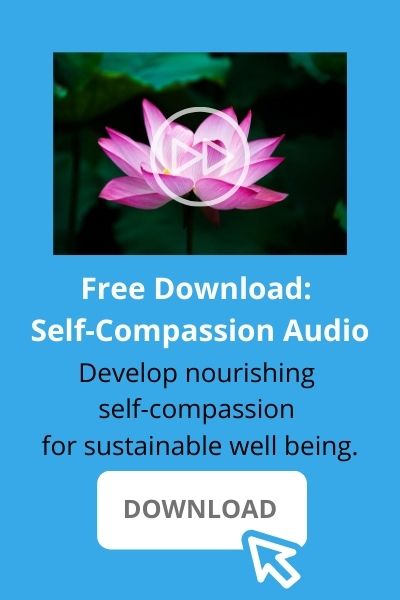And The Paradoxical Ingredients That Create Self-Trust
There are many definitions of confidence based on specific abilities or your self-presentation in the world. But in my experience, these definitions don’t capture the psychological essence of confidence.
Genuine confidence is rooted in a state of mind – and state of being – that dwells deep in our most inner world.
At a recent Zoom seminar that I attended, the host made a comment in passing that made me sit up and take notice. He mentioned that he had once heard confidence described as “absolute self-trust.”
Of course! Absolute self-trust is the sensed feeling, the inner state of being, that produces self-confidence!
Ask yourself these questions:
- Do I trust myself to make the right decisions?
- Do I trust myself in my relationships?
- Do I trust myself to be a good steward of my resources?
- Do I trust myself to create the life I want to live?
- Do I trust myself to take the right action in any circumstance?
When you answer these questions with an enthusiastic “YES,” that is confidence.
But what if you make a wrong decision, mess up a relationship, or do something you regret?
How Self Forgiveness Is Integral to Self Trust
In those situations where your mistake is obvious and painful, it is time to exercise self-forgiveness.
Forgiving yourself for making mistakes develops acceptance of your humanity and dispels the illusion of perfection.
When you hold mistakes against yourself, or even go so far as to define yourself by your mistakes, you poison self-trust at the root.
If you want to develop self-trust, forgiving yourself for your mistakes is the place to start.
Ask yourself these questions:
- Do I know anyone who has never made a mistake?
- Do I learn from my mistakes?
- Does holding my mistakes against myself serve any useful purpose in my current life?
- Am I willing to forgive myself for the mistakes I’ve made so I can move on with my life at my highest capacity?
When you choose self-forgiveness and allow relief to flow through you, it bathes every synapse and neuron in your brain and creates room for mental and emotional expansion. You can let go of the effort it takes to repeatedly blame and punish yourself and embrace a more open, curious, and creative mindset.
How Authentic Humility Nourishes Self-Confidence
Forgiving yourself for making mistakes can also develop humility, and it is exponentially easier to build confidence when you are humble.
At first, it seems paradoxical that deeply rooted self-confidence depends on humility. How can that be? The paradox disappears when you realize that one is nourishing the other.
You have deep self-trust because you accept that you sometimes make mistakes.
You are willing to forgive yourself because you realize that all human beings and all other species alive on this planet, make mistakes. Mistakes may occur through genetics, circumstance, bad judgment, or action, but they are all mistakes.
In this way, you are no different than any other member of this natural order.
And if you allow it, this understanding can engender authentic humility.
When you are humble, you know there are very few honest mistakes that cannot be made right through an apology or redeeming action. Knowing this deepens your self-trust.
Put it all together and what you have is a cycle. When you forgive yourself for making mistakes and accept your place in the natural order, you open the door to authentic humility and know that most honest mistakes can be redeemed. Under those circumstances, absolute self-trust is easy because you are no longer trying to live up to delusional ideals of perfection.

Self-forgiveness, acceptance, and humility are the building blocks that create self-trust.
Fortunately, there is always room to further develop each of these vital traits, and I find this to be a comforting thought.
If you want to expand this process even further, add a consistent desire to learn to the mix and watch your life change right before your eyes. But that is the subject of the next article.



Hello Sherris,
I just read this blog post – very nice!
When I look over what I don’t trust myself with – the negative answer comes with:
“Do I trust myself to be a good steward of my resources?”
As for the mistakes we make – I came to realization that, if we properly understand everything that goes on in life, we can turn every “mistake” into a stepping stone for the next level to which we can aspire.
This is a reality check for me! Self-forgiveness is so vital for peace. I accept that I am not perfect and will make mistakes, but I will learn from them. These building blocks make absolute sense!